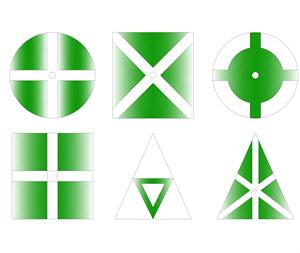How to grow Herb Garden at home
Would you like to have herb garden where you grow your own healing medicinal plants? Read the following article to know about How to Plant a Medicinal Herb Garden to get constant supply of healing plants for the treatment of common ailments.
Planting a Medicinal Herb Garden can be a fun as well as it is one of the most useful thing which is good for your health and as well for your whole family and atmosphere around you. Growing herbs is easy to do as many medicinal herbs are very easy to grow, and will give you a bountiful harvest in all seasons. Here are a few suggestions for getting started and all necessary information for such as preferred growing pH, soil requirements, watering needs, potential pest problems, and much more which are required for a well grown Herb garden.
How to choose location for Herb garden?
Herb garden location plays an important role to get good yield of Herbs throughout the year so it is very important to select the right location for your herb garden; herb garden doesn't require a big space it can be grown in small yard or even in containers. While selecting location for your herb garden ensures that the place will get six hours of direct sunlight every day and the place should be free from weeds and overhanging trees.
Herb Garden Soil Preparation Techniques: It is very important that your soil should be rich in nutrients and have good drainage. Most herbs will survive in poor sandy soil, but few will tolerate wet clay soil. If your soil is poor and lacking in nutrients, amend it with compost or composted manure before planting. Herb Garden Design
 It is good to use geometric patterns (circle, square, triangle, etc) for your herbal garden, which is framed by low hedges and paved paths. You can place a beautiful statue, art pieces, fountain, sundial, fruit tree, rose bush, or birdbath in the centre of your Herb garden to make it more beautiful. Make some raised beds in your garden and place your herb plants in beautiful pots on these raised beds surround them with light mulch such as wood chips, straw, or coir to make a potted herb garden especially if you have very limited space. You can also go for the "knot garden" design which is made using groups of low, bushy herbs or hedges lined up in interlacing patterns. Knot gardens have to be kept trimmed so that it looks beautiful.
It is good to use geometric patterns (circle, square, triangle, etc) for your herbal garden, which is framed by low hedges and paved paths. You can place a beautiful statue, art pieces, fountain, sundial, fruit tree, rose bush, or birdbath in the centre of your Herb garden to make it more beautiful. Make some raised beds in your garden and place your herb plants in beautiful pots on these raised beds surround them with light mulch such as wood chips, straw, or coir to make a potted herb garden especially if you have very limited space. You can also go for the "knot garden" design which is made using groups of low, bushy herbs or hedges lined up in interlacing patterns. Knot gardens have to be kept trimmed so that it looks beautiful. Herbs to Plant in Herbal Garden
There are lots of herbs which you can plant in your herbal garden as these are very easy to grow and give you a good amount of herbs though out the year. You can grow following herbs in your gardens and lots more.
• Echinacea (Echinacea species) is very popular herb in the western world. It is potent immune-system booster which can be used to treat colds, flu, and infections including ear aches and yeast infections
• Comfrey (Symphytum officinale) is used primarily for cuts, wounds, scrapes etc., you can use it either in the form of a poultice or as a salve. It can also be used effectively as a tea or tincture for ulcers. Excess of Comfrey may injure the liver so use it sensibly, perhaps no more than three cups per day for not more than three weeks.
• Calendula (Calendula officinalis) flowers are excellent for all types of skin problems, and also full of antioxidants. It is also very easy to grow Calendula in your Herb garden.
• Basil, Sweet (Ocimum basilicum) is very popular herb which can be used to flavor tomato juice and tomato pastes.
• Mint (Mentha spicata) is very easy to grow; it can be used in mint jelly and in mint juleps, lemonade and other fruit drinks to add refreshment. It can also act as very good mouth freshener.
• Feverfew- (Tanacetum parthenium) is an excellent headache remedy, just chew its one or two leaves and get rid of headache.
• Lemon Balm (Melissa officinalis) is very good herb which can give a new aroma and texture to your tea and also provide calming effects.
• Chives (Allium schoenoprasum) an excellent herb for salads, egg dishes and sauces of all kinds. Potted up, chives will grow on a sunny windowsill in winter and it is also very easy to grow.
• Thyme (Thymus vulgaris) is used for flavoring soups and poultry dressing.
• Peppermint- (Mentha piperita) is loved by all because of its soothing and calming effects. It is very good for digestion and tasty in teas.
• Oregano (Origanum vulgare) is an important culinary herb which can be more flavorful when dried than fresh. It is used in many cuisines, to get wonderful aroma and taste.
• Rosemary, (Rosmarinus officinalis) has disease prevention and health promoting properties. It also contains very good amounts of vitamin A. You can also use this herb in cooking recipes as well.How to take care of Herb Garden?
Herb garden are easy to grow but we have to take good care of them so that we can get maximum use of it. Here are some steps which you should follow to take good care of your herbal garden.
Watering herbs: It is very necessary to water newly planted herbs regularly how much quality of water will be sufficient that depends on what types of herbs you plant, whether you plant them in containers or directly into the ground as herbs planted in containers need more water.
Fertilizing herbs: Herb garden do not require too much fertilization, use simple liquid fertilizer to fertilize the garden. Do not over fertilize your herb garden as it will spoil the natural trait of the herbs. Try to use organic fertilizer for your herb garden.
Weeding herbs: Keep your garden free from weeds; it is very essential that you should check for weeds once a week. If your garden is free from weeds that it will get proper nutrients in sufficient amount from the soil for healthy growth. A garden free from weeds will attract fewer bugs which keep your Herb Garden from free from bugs and other related problems.
Pruning herbs: Pruning is very much required for your Herb Garden at least once a month. It will not add only a beauty and wholesome looks to your herbs but also will stop them from going to seed, keeping them producing much longer. How to harvest or Relocate herbs?
Harvesting is most necessary and enjoyable part of the herb garden so when your herbs grow completely and frosty winds approach bring your herbs indoors and harvest the stems and leaves of them. While harvesting the perennial herbs does not to cut them too low to the ground leave a couple of inches of growth to die back on its own so that the plant will be able to renew itself next year. If you get a high yield of herbs than it is good to preserve them by drying or freezing for later use
So go and plan your herb garden to get constant supply of healing plants for the treatment of common ailments. Do not have enough space to grow herb garden do not worry you can also grow inside herb garden or even in the containers which you can put in balcony of your house or at any place where it get sufficient amount of sunlight.
